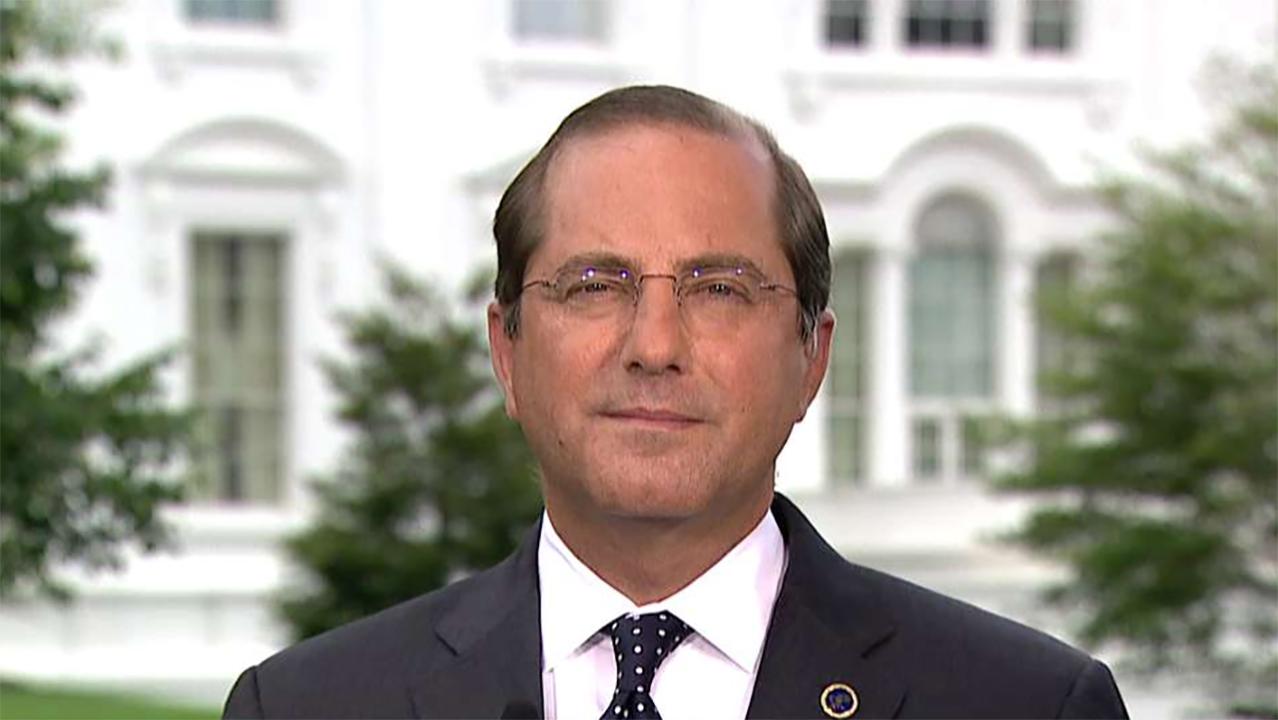White House backtracks on drug rebate rule in major blow to pricing effort
The Trump administration will no longer move forward on a proposed rule to eliminate the arcane rebates that flow from drugmakers to middleman pharmacy benefit managers, a significant reversal on one of the White House’s most sweeping actions to-date to curb rising treatment costs.
“Based on careful analysis and thorough consideration, the President has decided to withdraw the rebate rule," said White House spokesman Judd Deere. "President Trump will consider using any and all tools to ensure that prescription drug costs will continue to decline.”
The draft measure, which was projected to raise federal spending by $177 billion over the next decade, was poised to prohibit drug rebates for treatments offered in the Medicare and Medicaid programs beginning in 2020.
It drew intense backlash from pharmacy benefit managers (PBMs), whose operations would be significantly curbed by the action, and praise from drug companies that routinely blast PBMs as profiting off of the arrangement.
Health and Human Services Secretary Alex Azar previously said the measure had the potential "to be the most significant change in how Americans' drugs are priced at the pharmacy counter."
Top PBMs, like CVS Health, warned that removing the rebates would lead to higher drug costs for seniors, an outcome that sources say the White House was concerned about given the price increases would hit a key GOP voting bloc before the 2020 elections.
The news, which was first reported by Axios, sent stocks for CVS, Cigna -- which owns Express Scripts -- and UnitedHealth Group surging in pre-market trading on Wall Street.
The Pharmaceutical Care Management Association, the top lobbying group for the PBM industry, said it looks forward to working with policymakers on solutions for rising drug costs.
"Only drug manufacturers have the power to set drug prices. We believe that the key to lowering drug costs is to enact policies that encourage greater competition," CEO JC Scott said in a statement.
| Ticker | Security | Last | Change | Change % |
|---|---|---|---|---|
| CVS | CVS HEALTH CORP. | 75.77 | -2.58 | -3.29% |
| CI | THE CIGNA GROUP | 294.40 | +2.35 | +0.80% |
| UNH | UNITEDHEALTH GROUP INC. | 275.70 | -0.95 | -0.34% |
In a statement, an HHS spokeswoman said Azar and Trump "are taking bold action to end foreign free riding, examine how to safely import lower-cost prescription drugs, empower patients with meaningful transparency, and the list goes on.”
The decision to abandon a rule drew a sharp rebuke from some lawmakers.
"The administration’s decision today to allow the corrupt practice of middlemen negotiators pocketing patients’ money through rebates is a clear victory for big healthcare and a loss for patients.," Sen. Mike Braun, R-Ind., said in a statement.
The White House previously offered PBMs the opportunity to participate in a two-year pilot program that would phase-in the elimination of the rebates. Under the transition period, the federal government was poised to cover 95 percent of any additional costs imposed by the proposal.
CLICK HERE TO GET THE FOX BUSINESS APP
In another blow to the pharmaceutical industry, Trump is weighing an executive order to tie prices for Medicare Part B drugs to the lowest cost available internationally, an action that would undermine profits in the sector. It remains unclear whether that proposal is the same as one previously floated by the administration to link the price to an average cost across more than a dozen countries.
A federal judge recently blocked the White House's rule to require that drugmakers publish the price of drugs in TV advertisements.




















